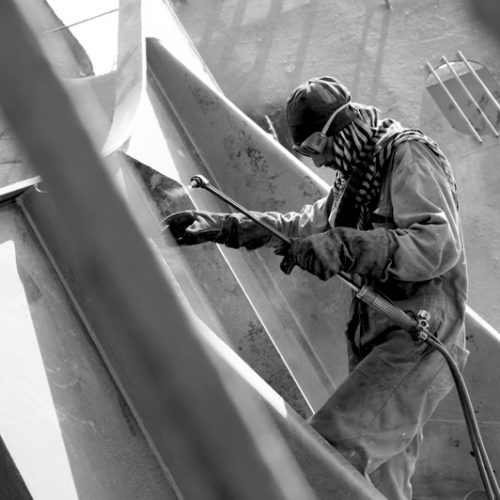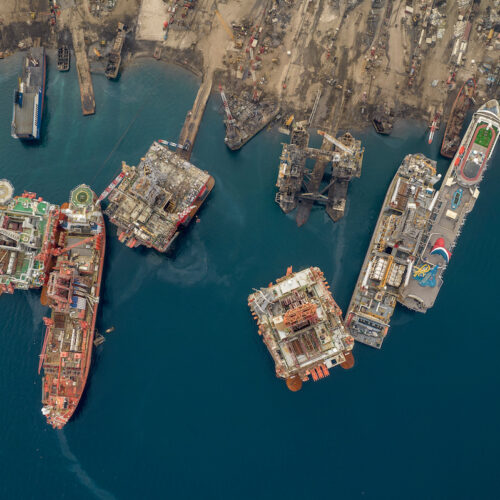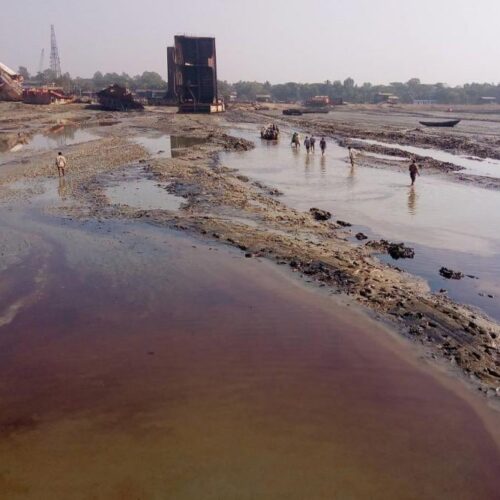Press Release – Two workers die while scrapping cruise ship in Turkey
Yet another fatal accident recently took place at the ship recycling yards of Aliağa, Turkey. On 12 July, Yılmaz Demir (55 years old) and Oğuz Taşkın (30 years old) were onboard the cruise ship CARNIVAL INSPIRATION when they were suddenly caught by flames. Yılmaz died on the spot, whilst Oğuz succumbed due to severe burns three days later at the nearby hospital. The exact circumstances of the accident are still unclear, but the fire supposedly broke out in the engine room. An investigation led by local authorities is ongoing and expected to be finalised soon.
As reported one year ago, the CARNIVAL INSPIRATION was bought by EU-listed yard Ege Çelik. Due to lack of dismantling capacity, Ege Çelik, with ship owner Carnival Corporation's approval, subsequently moved the cruise to Metas, a ship recycling facility recently acquired by Ege Çelik itself but not yet part of the EU list.
The demand for better scrapping practices than those available at the South Asian shipbreaking beaches has led to a sharp increase of larger tonnage reaching Aliağa. There, prices offered to ship owners are higher than what ship recycling facilities located in the EU are able to pay.

The recent tragedy is another sad reminder of how dangerous ship recycling can be. In the last ten months, the Turkish ship recycling industry has been hit by other serious accidents. Two workers lost their lives at two separate yards that are included in the EU List of approved ship recycling facilities. These recent accidents have prompted increased concerns about the conditions in Aliağa, including the management of hazardous wastes downstream and the lack of transparency on occupational diseases that sicken the workers. Since 1992, the year when a big explosion cost the lives of seven workers at plot 17, local NGOs have reported at least 47 occupational deaths in Aliağa.
NOTE
[1] When answering a Parliamentary Motion on 20 May 2021, the Turkish Environment Ministry stated that 714 ships have been dismantled in Aliağa in the last five years, resulting in the disposal of 74.325 tons of hazardous waste, including approximately 250 tons of asbestos. The figure for asbestos seems grossly underestimated, taking into account that the yards in Aliağa have dismantled numerous military vessels; oil and gas units; and also older vintage RoRo/passenger ships operating in the Mediterranean, all of which are expected to contain large amounts of asbestos-contaminated materials.
CORRECTION
An earlier version of this press release was corrected on 28 July to reflect that the accident in 1992 that cost the lives of seven workers occurred at plot 17 owned by Cukurova, and not EGE Çelik. The two companies are not linked.
Related news

Platform News – No more dead workers!
The Berge Stahl, one of the world’s largest iron ore bulkers, made its last visit at the Port of Rotterdam last week. The NGO Shipbreaking Platform… Read More

Platform publishes South Asia Quarterly Update #10
The NGO Shipbreaking Platform publishes today the tenth South Asia Quarterly Update, a briefing paper in which it informs about the shipbreaking industry in Bangladesh, India and… Read More

Platform News – Worker killed in yard breaking German-owned container ship “Viktoria Wulff”
On 4 December, worker Shah Jahan was killed on the spot at Arefin shipbreaking yard in Chittagong, Bangladesh, where German container ship “Viktoria Wulff” (IMO 9252101) is… Read More

Press Release – Europe has capacity to recycle its ships, new data shows – yet shipowners want to use dangerous, polluting yards abroad
Ship recycling yards approved by the EU will have enough capacity to handle demand from EU-flagged ships that need to be scrapped, a new analysis shows. The… Read More

Platform News – Latest report on ship recycling in Turkey presented in Izmir
Attending the event, representatives from local NGOs, unions and concerned citizens engaged in a constructive dialogue.
... Read More
Ship recycling in Aliağa under the spotlight
NGOs call on Turkey and the EU to bring needed change and transition the sector towards dry docks.
... Read More

